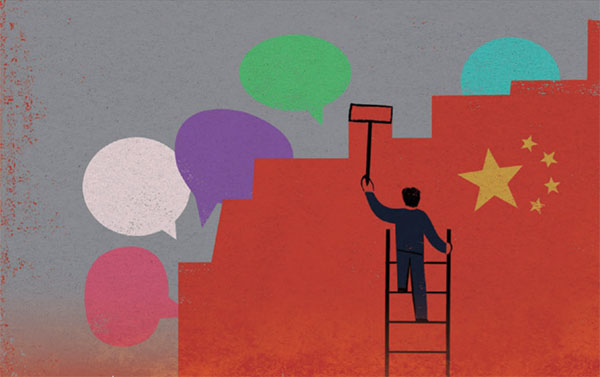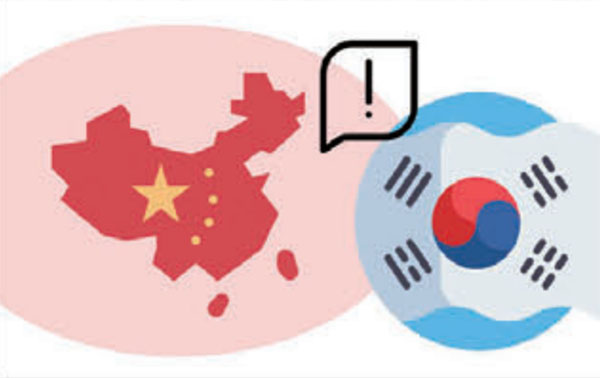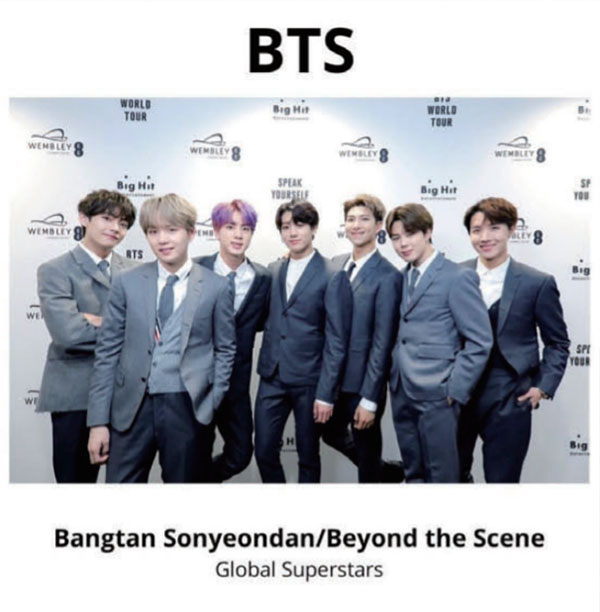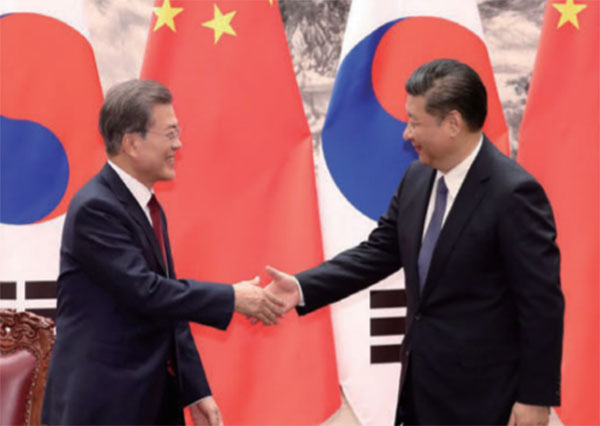
On January 9th, popular Chinese food vlogger Li Ziqi, who has more than 14 million subscribers on YouTube, provoked a backlash after posting a video in which she made kimchi and added the hashtags #ChineseCuisine and #ChineseFood. Similarly, last November, the Global Times, the Communist Party of China’s daily newspaper, claimed that China’s pickled cabbage, Pao Cai, had become the international standard for kimchi. Seen from these cases, as part of the Northeast Project, China attempts to incorporate much of Korea’s history and culture into its own, and it is gradually becoming a thorn in Korea’s side. Regarding this, the Sungkyun Times (SKT) is going to look at what the Northeast Project is, what damage it could inflict on Korea, and how it can possibly be avoided.
What Is the Northeast Project?
Background of the Northeast Project
The Northeast Project is China’s national research project on the history and current situation of the Three Northeast Provinces (Liaoning, Jilin, and Heilongjiang) in China. Its official name is the Serial Research Project on the History and Current Status of the Northeast Border Region, and this project includes China’s plan to incorporate some of ancient Korean history into its own. As China and South Korea formally established diplomatic relations in 1992, the dynamic of China-North Korea ties altered. Due to the traditionally congenial relations between China and North Korea, the study on the northeast region was a taboo subject; however, as the China-North Korea alliance weakened since 1992, Chinese researchers began to conduct a survey of that area. The Chinese government officially started the Northeast Project in February 2002, and the project shows China’s intention to approach the history of East Asia on a nationalistic basis.

Purposes of the Northeast Project
1. Stabilizing the Northeast Region
China is a multiethnic state officially composed of 56 ethnic groups, with the dominant group being the Han and 55 other groups forming minorities. The sole governing political party, the Communist Party of China, retains control over the minorities; however, the embracement of free-market economics has slowly weakened the central authority. The government began to devise measures to prevent the fragmentation of the country, and the Northeast Project is one of them. The Chinese government was interested in implementing any possible action to avoid secessionist tendencies among the residents of the Three Northeast Provinces. Most of the residents are Ethnic Koreans, also known as the Chaoxian group. Ethnic Koreans have some particular characteristics that distinguish them from the Han and the other minorities in many aspects. The Chaoxian characteristics include having a relatively short history of living in China and having a neighboring country where people speak the same language. Therefore, by systemically claiming the ancient Korean history that happened over the Three Northeast Provinces as its own via the Northeast Project, the Chinese government now attempts to stabilize and prevent the fragmentation of those areas.
2. Assimilating Korean Culture
China’s Northeast Project currently goes even further than merely incorporating ancient Korean history into its own and shows its ambition to absorb Korean history and culture irrelevant to the Northeast region. Due to this reason, the Korean media outlets now use the term for a wide range of actions and often modify the term to explain the issue better. For example, China’s claim of kimchi as its own was covered as the Kimchi Project by the media. By assimilating Korean culture, China is assuming to take advantage of Hallyu, the phenomenon that refers to the growth in global popularity and consumption of Korean culture. Indeed, assets that contain a high cultural and economic value, such as kimchi, appear to be of particular interest to the Chinese government. The hanbok is another example. Through Hallyu contents like the drama series Kingdom, the traditional Korean clothing, the hanbok, has drawn global attention, and now China claims that the hanbok originated from China’s Ming Dynasty. As seen from these cases, it is evident that, on a national approach, China now attempts to exploit the value of key Korean cultural assets by absorbing particularly popular Korean culture.

What Damage Does the Northeast Project Inflict on Korea?
Damage Caused by Historical Distortion
China’s distortion of history can bring several problems to South Korea. Many Chinese citizens lack proper knowledge and consciousness on history, for they face a distorted view of East Asian History that China promotes throughout the school curriculum and media. For this reason, when they are confronted with the truth that contradicts their beliefs, Chinese people are likely to be incited with nationalist sentiments. Furthermore, the nationalist sentiment sometimes leads people to take actions such as boycotting products from a particular country. In the same context, South Korea can suffer both diplomatically and economically from China’s distortions of history through the Northeast Project. The Korean War is a classic example of how China’s biased historical account has already damaged Korea. According to The Washington Post, in October 2020, popular K-pop boyband BTS accepted the Korea Society’s James A. Van Fleet Award, for they achieved a significant role in developing good ties between South Korea and the United States. The event was harmless, but Chinese netizens went furious over the fact that the leader RM did not mention China when commenting about the Korean War. In the acceptance speech, he said, “We need to always remember the history of the pain shared by the two nations (South Korea and the United States) and the sacrifices of many men and women.” Because of the strong nationalist sentiments, even brands such as Samsung and Hyundai Motor Group had to remove traces of BTS from their Chinese websites. This case clearly showed how Chinese propaganda could bring absurd damages to Korea and warned celebrities and brands about the negative side of China’s economic power.
Damage Caused by Cultural Assimilation
China no longer hides its ambition to assimilate Korean culture. The Northeast Project is a serious issue, for China could threaten Korea’s national identity and culture by taking its cultural assets. Having used traditional cultures to provide differentiated elements to consumers, Korean entertainment businesses, from K-pop to K-dramas and K-movies, are currently appealing to the global markets. For instance, in their music video of How You Like That, the K-pop girl group BLACKPINK appeared wearing hanboks and successfully grabbed international fans’ attentions. Similarly, Netflix’s original series Kingdom played a significant role in spreading the beauty of the hanbok among foreign viewers. According to the Korea JoongAng Daily, John Hornor Jacobs, an American author known for the novel Southern Gods, tweeted, “Really enjoying Kingdom on Netflix, the Joseon era Korean zombie show, but can we talk about all the hats in the show for a hot second?” Noticing such a positive response, the Chinese government then began to claim the hanbok as their traditional outfit. China now displays the hanbok as its own through several media outlets. For example, Shining Nikki, a mobile game produced by Chinese company Paper Games, released a set of hanbok items on the servers and explained them as traditional Chinese clothing. As seen from this case, China now attempts to take Korea’s cultural competitiveness and makes money with Korea’s cultural assets. Thus, there is a possibility that foreigners who lack knowledge about Asian culture might fall into the trap and misunderstand the origin of some important Korean cultural assets.

How to Escape from the Northeast Project
Strong Statement of the Government
Regarding the recent outbreaks of the Northeast Project, the South Korean government has shown a disappointing performance. For example, in October 2020, Chinese leader Xi Jinping was accused of making inaccurate comments about the Korean War while delivering his speech at the 70th-anniversary conference of China’s participation in the Korean War. During his speech, he claimed that China fought against “imperialist invaders,” presumably the United States, and “defeated” them even though several United Nations Security Council’s resolutions pointed out North Korea’s invasion. Regarding the issue, the South Korean Minister of Foreign Affairs and South Korean Minister of National Defense took a firm stance against China’s misinterpretations of the Korean War. Still, they were not enough to elicit a response from China. Therefore, having learned a lesson from this incident, the South Korean government needs to take more decisive and immediate actions against China’s Northeast Project and send a strong message to China. If the Blue House issues an official statement of protest, it will have much more powerful impacts than those of ministers.
Use of Hallyu Contents
As China utilizes the media in spreading the Northeast Project, the South Korean government must engage in a counterattack by actively using the power of Hallyu contents. Currently, Hallyu contents are making remarkable achievements in global markets. For instance, many of Korean Netflix’s original series, such as Kingdom and Sweet Home, has ranked in the Top 10 in many different countries. Under the influence of these contents, the national image of Korea is well promoted around the world. Therefore, the government must take advantage of them regarding diplomatic issues like the Northeast Project. In fact, when Chinese netizens were filled with outrage over BTS leader RM’s acceptance speech of the James A. Van Fleet Award, foreign newspapers criticized China’s biased historical account, helping people understand how serious the issue is. This incident proved the positive influence of Hallyu. The South Korean government needs to systematically use this power to form positive public opinion and gain international support about the Northeast Project issue.

Reinforcement of History Education
The Korean school curriculum regarding East Asian History must offer Koreans proper knowledge and skills to respond to the Northeast Project issue. The ultimate purpose of learning history is to better understand and respond to the world with lessons from ancestors. History allows people to practice how to handle specific problems and prepare them for potential outbreaks with a better attitude and knowledge. However, current history education in Korea merely focuses on the superficial purpose, passing information, and lacks practical use. In fact, the Korean History textbook published by the Mirae-n company helps students get a glimpse of the Northeast Project by providing images and charts. However, it does not give the details about China’s intentions, which are crucial to fully understand the dynamics of the issue. More importantly, the textbook does not explain the South Korean government’s past responses, failing to give proper reference when facing the same situation. Therefore, from now on, the Korean school curriculum must focus on preparing Koreans for how to manage severe issues like the Northeast Project and providing enough context to achieve the goal.
Starting from the plan to stabilize the Three Northeast Provinces, the Northeast Project has expanded its area to assimilate Korea’s various historical and cultural assets. Because of this, South Korea suffers from unwanted, unpleasant controversies, and in order to escape from the continuing situation, the government must try its best to end the Northeast Project by making strong statements and actions, using Hallyu contents to raise global awareness, and reinforcing history education among Koreans.
